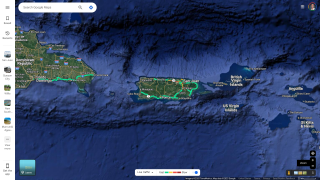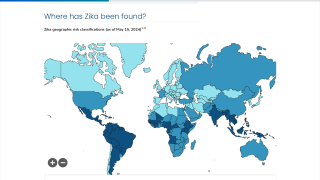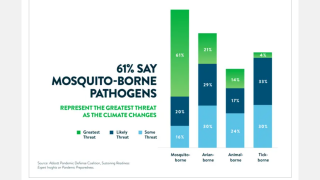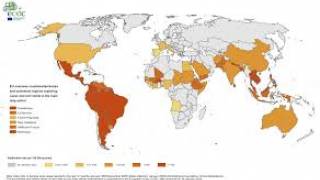965 Zika Cases Confirmed in 2024

The Zika virus was first identified in 2007 and caused a significant outbreak in Brazil in 2015. The outbreak in Brazil led to reports of Guillain-Barre syndrome and pregnant women giving birth to babies with congenital disabilities and poor pregnancy outcomes.
Since then, the Pan American Health Organization (PAHO) has issued Zika outbreak alerts yearly.
As of early 2024, several countries and territories in the Region of the Americas have confirmed 965 locally transmitted Zika cases.
On February 29, 2024, the PAHO reported Brazil (867), Columbia (50), Bolivia (27), Peru (6), Costa Rica (6), and Puerto Rico (3) had reported Zika virus cases this year.
The PAHO recently stated considering the number of Zika cases reported in the first weeks of 2024, with an exponential increase in several countries, it reiterates that Member States should intensify efforts and actions to control the Aedes aegypti mosquito, the primary vector of disease transmission.
"Most infections with this virus are asymptomatic or mild, making their detection by healthcare systems quite challenging," María Van Kerkhove, Head of the Emerging Diseases and Zoonoses Unit at the World Health Organization (WHO) said in September 2023.
"With regard to complications from the disease, WHO also warned that pregnant women are particularly susceptible to its effects since it can lead to congenital malformations, such as microcephaly, as well as an increased likelihood of preterm births or spontaneous abortions."
The U.S. CDC recently published Volume 30, Number 2—February 2024, Evidence of Zika Virus Reinfection by Genome Diversity and Antibody Response Analysis.
"We detected unusual virus temporal diversity, uncovering the existence of divergent genomes within the same patient..... our findings provide evidence for the existence of ZIKV reinfection events."
"Although reinfections are extremely difficult to confirm when there are only very similar phylogenetically strains causing an outbreak, we detected divergent viruses in ZIKV-infected persons who provided longitudinal samples, which suggests a subsequent and distinct infection event."
From a prevention perspective, no approved Zika vaccines are available in 2024.
Our Trust Standards: Medical Advisory Committee
























